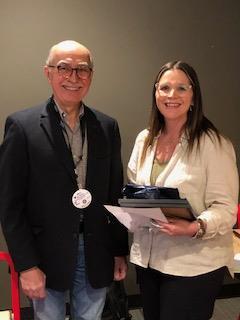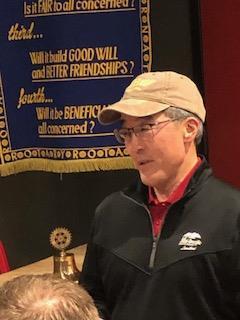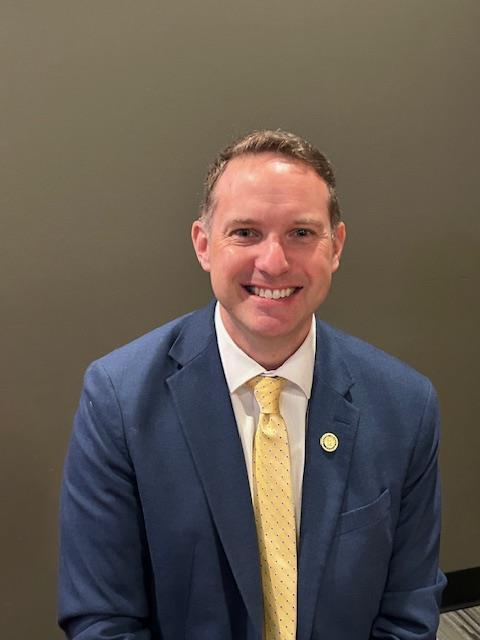North Notes
Spokane-North Rotary Club
April 22, 2024
Calendar:
April 29: Noon meeting at the Bark. Speaker: Mike Kobluk, Expo 74 50th anniversary memories.
May 6: Noon meeting at the Bark. Speaker: Michelle Fossum, navigating pathways with a special-needs child.
May 13: Noon meeting at the Bark. Program: Skillskin – providing meaningful employment and quality of life.
May 20: Noon meeting at the Bark. Speaker: J.D. Paquet, one person’s cerebral palsy story.
May 27: No meeting. (Memorial Day Holiday.)
Happy Buck$:
Ron Noble, with wife, Melody, at his side, was happy to celebrate their 29th anniversary.
Sherri Fritts was happy to celebrate her Expo memories podcast and that Art Rudd was there.
Chuck Rehberg was happy to celebrate the Earth Day anniversary. As a reporter, Chuck wrote the Spokane Daily Chronicle’s first Earth Day observance story in 1970.
Announcements:
Board members are still welcomed to join the Rotary table from 10 a.m. to 4 p.m. May 18 as part of the 50th anniversary of Expo ’74. The table will be near the Rotary Fountain in Riverfront Park.
Welcome Jessica!

Melinda Keberle and Bill Simer welcomed Jessica Shew, our club’s newest member.
Melinda, a Realtor, has worked with Jessica through Idaho Central Bank. Melinda said Jessica has three children and likes to travel and drink some wine.
Club President Simer said the board has a goal of adding five new members – Jessica is the first – by Sept. 30.
WWII ‘camp’ lessons recalled
Casualties of war come in varieties of ways.
And while hostilities continued overseas, for Japanese Americans in the USA, the dreaded words at home for Japanese Americans were “incarceration” and “internment.”
 Rod Tamura said it’s important not to forget the impacts on those affected.
Rod Tamura said it’s important not to forget the impacts on those affected. At the April 22 luncheon, Tamura, now retiring from a career with Spokane schools, brought a large plastic bin of family memories. There were pictures of the Tamuras, his dad’s family, and Obas, his mom’s family. He shared slides, yearbooks, documents, maps and many stories.
Many of the pictures showed conditions in the barren landscapes of Minidoka in southern Idaho and in Tule Lake, Calif., near the Oregon border.
Two months after Pearl Harbor, President Franklin Roosevelt issued Executive Order 9066, forcing tens of thousands of Japanese in America and Japanese Americans to abandon farms and businesses. They were boarded on buses with blackened windows as they moved inland to make-shift lodgings, former stables and other residences often ringed with barbed wire.
Tamura, now nearly 64, wants to continue retelling his family’s ordeal, especially to teens who get just glimpses of this part of history.
Rod, raised in Spokane, said he himself “didn’t know much about the internments until he was in high school,” adding, “mom didn’t want to talk about it.”
He said the ordeals for Japanese Americans “often are glossed over” in history lessons, so he has developed a 45-minute presentation to share his families’ stories.
Rod learned that until 1875 most Asians had no citizenship rights. During internments during World War II most rights were suspended.
Much of his story involves the Minidoka War Relocation Center in Hunt, Idaho, in Jerome County in south central Idaho. The camp housed more than 13,000 from the February 1942 opening until its closure on Oct. 28, 1945. Minidoka was one of 10 internment camps.
Tamura said he visited Minidoka just before Covid, saying, “Oh, my God. It blew my mind.”
His family had a farm on 194 acres in Kent, Wash., but often land then could only be leased, not owned.
During the internments, some ancestors here lodged at the Puyallup Fairgrounds, called “Camp Harmony,” but housed in former stables. Curfew there was 9 p.m. and lights out at 10 p.m., Tamura said.
At Minidoka, he said, there were 44 blocks of housing in 12 wood-framed barracks, some with just black tar paper sides, and the cold winds “swept in and sand got into everything.” Pot-bellied stoves provided the only heat. Tamura showed a picture of the guard tower, which looked inward on the residents.
The camp had two elementary schools, one junior high and one high school.
Players could play baseball on a dirt field, and Rod showed pictures of his dad in uniforms in the mid-1930s. The irony of America’s past-time is a long way from Ichiro Suzuki’s pending Hall of Fame notoriety and Shohei Otani’s multi-million wealth as baseball’s wealthiest player.
Filed say 844 residents who were incarcerated at Minidoka volunteered or were drafted for military service, including William K. Nakamura, a Medal of Honor Army soldier.
A national monument for Minidoka was approved in 2001.
After retirement, he said he will continue his history lessons about the internments, especially to the young.
During the internment, much of the land and many businesses were confiscated. It took decades to get any reparations. In 2006, President Bush approved $38 million divided for all 10 camps.
As club members Eric Johnson and Ron Noble mentioned during Tamura’s talk, Yakama Tribal members did return some of the property reclaimed to Japanese Americans in the Yakima Valley—another irony as so many Indian Americans were forced onto reservation lands.
Tamura asked his dad about returning to farming after the internments, but his dad told him “no, farming is a hard life.”
Rod said internees were sent to the camps “if people had just 1/32nd Japanese blood.”
A national aid he will continue his history lessons about the internments, especially to the young.
His lessons: “Be respectful and appreciate the rights you have because things can change.”
“And we have to be care about what other groups are like.”
Bulletin editors: Chuck Rehberg and Sandy Fink. Photos by Nancy Hanson.



.png)













Spokane, WA 99201
United States of America